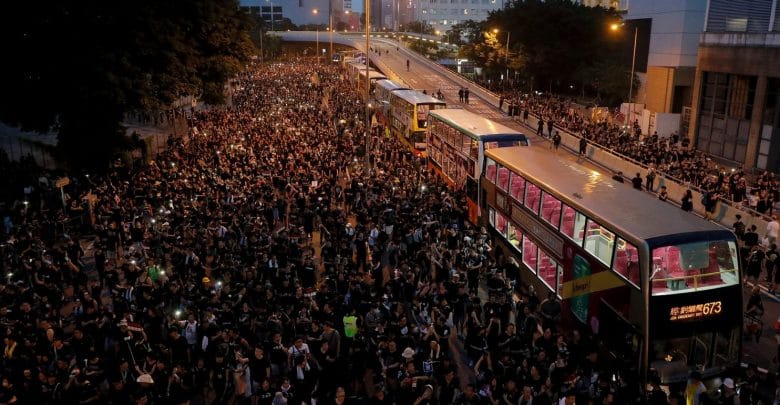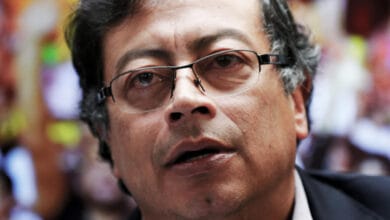
Fareed Zakaria: Hong Kong reminds us of China’s fragility
Last Sunday, according to organizers, about 2 million people marched in a Chinese city to protest an extradition bill that they labeled Chinese “tyranny.” If accurate, it would mean that 1 in 4 Hong Kongers was out in the streets fighting Chinese encroachment. While it is difficult to predict what path this story will take, it highlights something we tend to forget: the fragility of the Chinese political system.
China’s rise has been something of a miracle. It is, quite simply, the most successful case of economic development in human history. The country’s gross domestic product has grown about 10 percent a year for 40 years, moving more than 850 million people out of poverty. This accounts for the vast majority of poverty reduction on the planet. In doing so, China has also proved to be the greatest exception to a near-iron law of politics.
Decades of political-science research have shown that there is a fairly strong connection between economic growth and democracy. As countries modernize their economies, typically they are forced to also change their societies and, eventually, their political systems to make them more open, accountable and democratic. There are outliers, such as oil-rich countries, which gain their wealth without any need to modernize. And yet, more recent scholarship has affirmed the basic link: As you get rich, the chances of becoming more democratic increase.
Not China. Until recently, the main exception to “modernization theory” was Singapore, a tiny city-state, viewed as a small hothouse with extremely gifted leaders and thus revealing very little about the rest of the world. Yet China, too, kept getting richer while staying resolutely nondemocratic. In fact, in recent years, the political system has become more repressive, censorship has increased, and the country’s president has dispensed with term limits for himself.
What explains China’s almost unique path to wealth without democracy? Yuen Yuen Ang of the University of Michigan argues that over the past few decades, China has actually developed an “autocracy with democratic characteristics.” She notes that reforms have made the country’s vast administrative bureaucracy — once a stagnant, communist behemoth — more nimble, transparent and accountable. These changes should be considered a type of political reform, she argues.
Ang and others point to China’s highly meritocratic political system, in which officials move up through rigorous examinations, evaluations and objective measures of results such as economic growth. This exceedingly competitive system ensures quality and responsiveness, defenders say. Scholars such as Shandong University’s Daniel A. Bell argue that such a political model rests on the trust and faith in a mandarin governing class that is a key feature of Confucian societies.
And yet, one has to wonder. Good bureaucracy is not the same thing as democracy, which centers on the ability to both choose your leaders and throw them out of power. As for Confucian societies, whenever we hear cultural arguments, let’s not forget Hong Kong and Taiwan. Both are thoroughly Chinese societies with a strong affinity for democracy, as has been apparent over the past few weeks.
The United States is now quarreling with China on several fronts. In these sorts of geopolitical struggles, Americans often make the mistake of believing that their adversary is 10 feet tall — think of the Soviet Union. First, it’s not clear that China is an adversary in the Cold War sense; it may be more aptly described as a competitor. More important, while China has great strengths, it also has weaknesses.
Consider President Xi Jinping’s situation. Growth in China has slowed substantially. It is being bolstered because local governments and state-owned companies are borrowing vast sums of money. The country confronts a future with fewer workers, the consequence of its one-child policy (itself a classic example of the dangers of dictatorship — a centrally directed mistake, implemented with ruthless efficiency.)
But perhaps above all, China has a political system that faces real pressure. In an age of populism and anti-elitism, China is still ruled by a cadre of distant elites. The Chinese Communist Party maintains power through the promise of growth and the application of force. It uses an elaborate system of censorship and increasingly sophisticated espionage on its own people. It faces a populace that is not genetically or culturally different from those in Taiwan and Hong Kong — where millions are making clear that they don’t want just good government or clever bureaucrats but democracy. It might well turn out that the trade war with the United States is one of Xi’s lesser problems.
